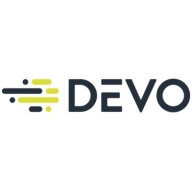


Find out what your peers are saying about Splunk, Wazuh, Microsoft and others in Security Information and Event Management (SIEM).



Devo is the only cloud-native logging and security analytics platform that releases the full potential of all your data to empower bold, confident action when it matters most. Only the Devo platform delivers the powerful combination of real-time visibility, high-performance analytics, scalability, multitenancy, and low TCO crucial for monitoring and securing business operations as enterprises accelerate their shift to the cloud.
Elastic Security combines the features of a security information and event management (SIEM) system with endpoint protection, allowing organizations to detect, investigate, and respond to threats in real time. This unified approach helps reduce complexity and improve the efficiency of security operations.
Additional offerings and benefits:
Finally, Elastic Security benefits from a global community of users who contribute to its threat intelligence, helping to enhance its detection capabilities. This collaborative approach ensures that the solution remains on the cutting edge of cybersecurity, with up-to-date information on the latest threats and vulnerabilities.
Splunk Enterprise Security is widely used for security operations, including threat detection, incident response, and log monitoring. It centralizes log management, offers security analytics, and ensures compliance, enhancing the overall security posture of organizations.
Companies leverage Splunk Enterprise Security to monitor endpoints, networks, and users, detecting anomalies, brute force attacks, and unauthorized access. They use it for fraud detection, machine learning, and real-time alerts within their SOCs. The platform enhances visibility and correlates data from multiple sources to identify security threats efficiently. Key features include comprehensive dashboards, excellent reporting capabilities, robust log aggregation, and flexible data ingestion. Users appreciate its SIEM capabilities, threat intelligence, risk-based alerting, and correlation searches. Highly scalable and stable, it suits multi-cloud environments, reducing alert volumes and speeding up investigations.
What are the key features?Splunk Enterprise Security is implemented across industries like finance, healthcare, and retail. Financial institutions use it for fraud detection and compliance, while healthcare organizations leverage its capabilities to safeguard patient data. Retailers deploy it to protect customer information and ensure secure transactions.